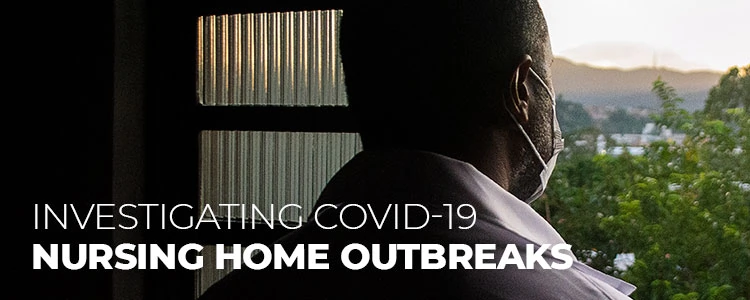
Nursing homes and assisted living facilities carry a high risk of acquiring and succumbing to the coronavirus. This deadly disease spreads through droplets that are sent into their air, usually by a cough or sneeze. Because nursing homes care for residents who live in close quarters, this allows the virus to spread quickly. The disease can easily spread between patients, healthcare workers and visitors in a nursing home environment.
As of April 8th, more than 81 of Maryland's 200+ nursing homes have reported coronavirus cases. Pleasant View nursing home, in Carroll County Maryland, has confirmed 17 deaths and 98 positive cases. This accounts for a majority of deaths, as well as almost 50% of all positive cases in Carroll County.
In Henrico, Virginia the Canterbury Rehabilitation & Healthcare Center has had 84 confirmed positive cases and 39 deaths so far.
Some nursing homes may restrict family and friends from visiting loved ones during the pandemic, especially those in areas where COVID-19 is widespread. However, for those nursing homes who allow visitors, these facilities must actively screen for and restrict access to anyone who has shown symptoms of a respiratory infection, such as fever, cough, or sore throat, or come into contact with someone diagnosed with COVID-19. Screening could include temperature checks with thermometers at the door and checking for the other respiratory symptoms. Visitors who pass the screening and are allowed to enter should be given access to their resident’s room only and are barred from congregating in hallways and communal areas. The facility should also be carefully documenting and logging all visitor information at the facility. In order to take further precautions, nursing homes should encourage visitors to wear face-covering when visiting their loved ones or other people in the facility and strongly encouraging visitors from engaging in physical contact such as hugging or handshaking during the visit. These guidelines apply not only to people visiting residents, but also contractors, mail carriers, delivery people, repairpersons, and other people who have official business in the facility.
People who are concerned about their loved ones’ safety during this pandemic can take several proactive steps to ease their anxiety. First, reach out to the director of nursing at the facility where your loved one is staying and ask about the procedures in place that will protect residents and staff. Since COVID-19 has affected all of our lives at this point, all facilities should have a written policy and action plan available for distribution upon your request. If your loved one’s facility does not, request that they create an action plan as soon as possible, and follow up until they do. Facilities should already be following longstanding CDC guidelines for infection prevention.
Secondly, COVID-19’s heightened risk to the vulnerable elderly population makeup of nursing homes still does not eliminate the fact that some residents face additional risk factors that require modifications to their care plan. If your loved one is either pre-existing immune-compromised, has respiratory issues, a condition that requires a high level of face-to-face contact with health professionals, or an out-of-facility care routine that requires travel (such as for dialysis), ask the care team to provide a written plan that accounts for these special needs.
The CDC has issued guidance with strict procedures for preventing the spread of COVID-19. First, nursing home staff should wear personal protective equipment, restrict visitors from coming into contact with infected patients, train staff to practice proper hand hygiene and frequent hand washing, and prevent potentially infected or infected staff members from coming into contact with nursing home patients. Other things a nursing home can do is make sure there is an abundance of hand sanitizer for guests available at all times, have an adequate supply of COVID-19 testing kits available, have rules in place that allow for staff to wipe down surfaces regularly with disinfecting wipes or bleach. Although materials are hard to come by, nursing homes should also make efforts to have supplies of personal protective equipment such as medical masks, gloves, gowns, and protective eyewear. Finally, if a nursing home identifies a resident who is exhibiting respiratory symptoms frequently associated with COVID-19, such as cough and fever, the facility should place that resident in isolation.
If proper protocols are not followed, the safety and health of our elderly loved ones are put at risk. Pleasant View nursing home in Carroll County, Maryland and the Canterbury Rehabilitation & Healthcare Center in Henrico, Virginia are examples of how rapidly this virus can spread and just how dangerous it can be to the elderly. Do not be afraid to ask questions, it may keep your loved ones safe! If you have any questions or need more information please call, The Cochran Firm today at 1-800-THE-FIRM. We are here for your family and our community. Together we will get through this.






